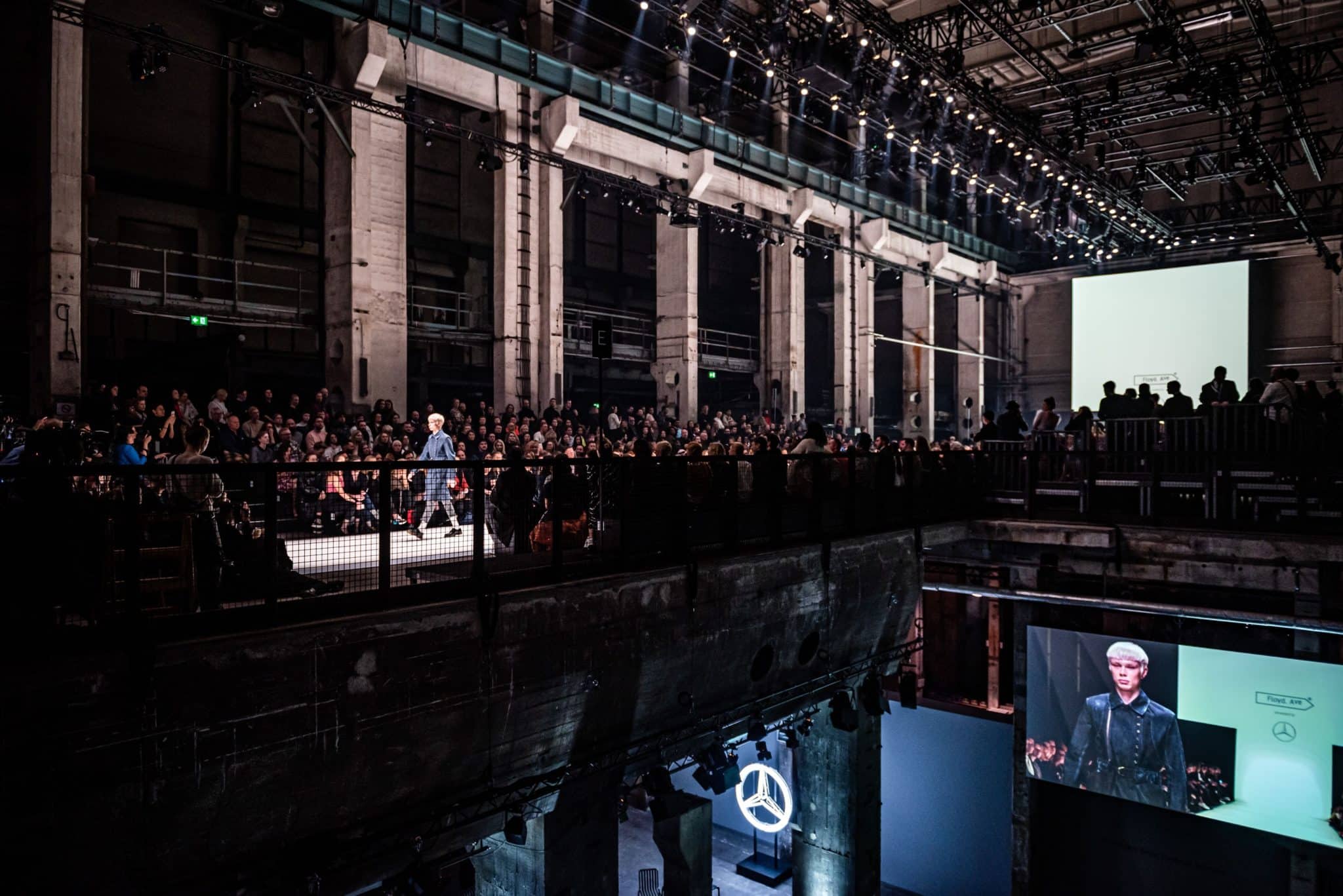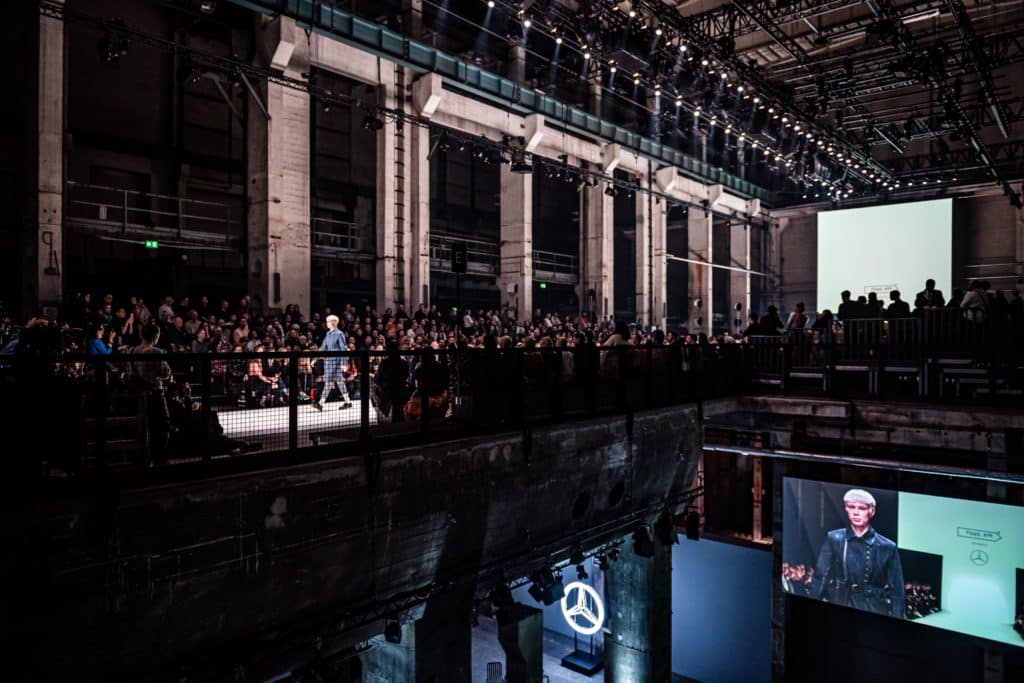Alongside massive industry changes as a result of social and political changes globally, the format of trade shows in Germany as well as fashion week in 2020 have also seen a shift. Following on from other fashion weeks (such as London and Shanghai) who have made the move to digital, some presentations are choosing to migrate online to showcase new collections and pieces. However, some have chosen to remain physical, skipping summer seasons altogether, to present in January, with predictions that the global pandemic will have calmed down. In this article, we discuss the industry shifts in Germany and explore why technology will be the key to amplification and success for fashion brands.
The new projection for trade shows
Trade shows, Premium, Seek and Neonyt announced plans to move to Germany’s finance hub, Frankfurt in 2021. Although this came unexpectedly to many industry insiders, the real reasons remain unsurprisingly consequent for those involved in trade show business.
Sustainability-focused Neonyt is part of the portfolio that belongs to and is managed by Frankfurter Messe. After a few seasons in Berlin as well as impressive media coverage (a total MIV® of over €500K last year) it decided to come back home, after its neighbor at the Tempelhof location – Panorama trade fair – decided not to host any new fairs during the upcoming seasons. It was a matter of commercial reason to team up with another strong market performer, PREMIUM exhibitions (€295K in MIV® last season) to orchestrate the move to Frankfurt and to call the entire event 'Frankfurt Fashion week.'
PREMIUM, on the other hand, will host a completely digital trade show which will be the first of its kind in Germany. As they considered working on new formats, the organizers decided to consolidate digital offerings with PREMIUM+SEEK Passport. “This transformation is crucial in light of the current circumstances. Digitalization is a fantastic opportunity for brands and buyers to remain relevant and conduct international business,” says Anita Tillmann, Managing Partner of the PREMIUM Group The digital PREMIUM+SEEK Passport event is due to take place from 14 July to October 2020.
Despite the move of trade fairs to Frankfurt, Berlin Fashion Week will still go ahead with MBFW and the business-to-consumer event “About You Fashion Week” by the namesake German e-tailer. We analyzed their first edition last summer, which resulted in an impressive €1.2M MIV, €500K of which was generated by influencers such as model and presenter Lena Gercke and creator Sandra Lambeck. €491K was thanks to the Media Voice and €210K by brands such as Gercke’s own LerGer and underwear manufacturer Lascana.
After slightly difficult seasons, fashion week in the German capital managed to woo back designers such as William Fan, Marcel Ostertag, Marina Hoermanseder, Odeeh, and Nobi Talai with a reboot at the 80,000-square-foot Kraftwerk Berlin in January, drawing 11,000 visitors and 50,000 digital viewers. The next edition is slated for January due to current pandemic restrictions.
“While the news on the move of trade fairs caught us by surprise, it creates ample space for new ideas. The fairs and the runways have always addressed different audiences. We are now free to set a date that suits us and create independent concepts that focus on the future of fashion communication and digitalization.” said Marcus Kurz, director of Nowaday, the agency behind organization and production of MBFW Berlin.

The digitization of fashion week in Germany and how technology can improve connectivity in 2020
With two cities and two different formats, a seamless connection between live inspiration and digital efficiency is key. As fashion shows shift more and more towards digital experience, so do retailers, designers, and buyers. They look into new ways to communicate and create relatable content in the digital world.
London Fashion Week presented between June 12 to June 14, showcasing new designs from British brands, digital showrooms, short films, podcasts, and playlists, all from a new home (londonfashionweek.co.uk) and a new hashtag (#LFWreset). The British Fashion Council reported 145,000 views alone via the LFW website, and 3.5 Million people tuned in via different online channels and social media.
London is not the first city to move its fashion week online since the Covid outbreak began; Shanghai and Moscow went digital for their fashion weeks in late March and April. However, it is something of a test case for what will follow: digital offerings from Paris (couture and menswear) from July 6 to July 13, and Milan from July 14 to July 17.
If these digital fashion weeks attract millions of viewers far beyond the traditional attendees and give designers a new creative outlet, they are sure to add momentum to, to some extent forced, digitalization of the traditional presentation formats in fashion.
Events are still great opportunities for networking within the industry as well as externally. With no physical gathering, digital showrooms are a tool that makes this easier for brands, retailers, and media professionals to get connected using technology. The mixture is more democratic and accessibility is key: there are big brands, but also newcomers, photographers, editors, and of course, PR agencies utilizing digital showrooms for the collections their clients want to present to the most relevant Voices. It acts almost as a one-stop-shop for users: one app to search for and find collections and designers, and one place to upload and access data and content – in short, one comprehensive digital experience.
Moreover, not only do speed and accessibility play a role; historical data from previous seasons can help brands adjust their strategy, be it reaching out to their existing customers and loyal media, or defining which looks work best by applying data analysis and tracking tools.
The Covid-19 pandemic has forced brands and the primary fashion week in Germany to rethink and adapt their marketing strategies in order to be more personal and approachable to their customers in 2020, and technology is essential when adapting to the new normal.
To find out more about how to create and use digital showrooms and galleries, please click here.
